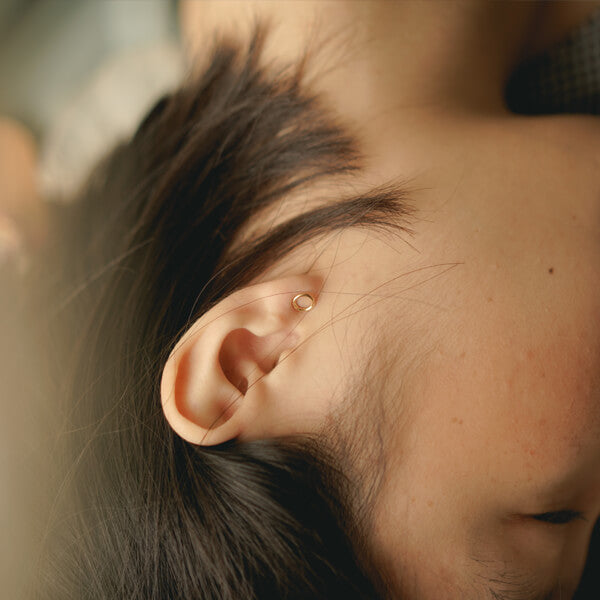
Can Earwax Affect Your Hearing?
Share
Earwax can affect your hearing by creating a blockage that prevents sound waves from entering your ear canal and being processed in your brain. In fact, when you clean your ears with a cotton swab, you can make a blockage even worse by pushing the earwax further into your ear canal. As a result, you can experience temporary hearing loss.
The good news is that earwax (or cerumen) is entirely normal, and there are simple measures you can take to prevent it from impacting your hearing. In the following, we will discuss why we need earwax, how earwax can affect your hearing, and how to prevent earwax related hearing loss.
Why Do Ears Produce Earwax?
Our ears produce earwax to protect the ears. As an oily substance, your earwax helps to moisturize your ears, which in turn helps to prevent you from itching your ears and exposing them to germs that could lead to infection. Likewise, it helps to prevent outside substances, such as dirt, from entering your ear canal. Moreover, earwax contains peptides that help prevent bacteria and other fungi from spreading and causing an infection.
While earwax serves to keep our ears clean and healthy, our bodies can go overboard and produce excess earwax, especially if you wear hearing aids or earplugs regularly. In these cases, many of us may try cleaning our ears ourselves, but this only exacerbates the amount of wax your ears produce, which can lead to wax buildup and potential blockages.
Is Earwax Affecting Your Hearing?
As noted, earwax can affect your hearing when it creates a blockage in your ear. In fact, hearing loss caused by blockages in the outer, middle, or inner ear can be classified as conductive hearing loss, and to no surprise, earwax is the leading cause of this hearing loss type.
If you are experiencing hearing loss, and suspect it may be earwax related, consider whether you are experiencing any of the following symptoms:
- Sudden (temporary) hearing loss
- Ringing in your ears (tinnitus)
- Feeling as if you have cotton in your ears
- Ear pain
- Discharge
- Odor
If you have a blockage, rather than attempting to clear it from your ear yourself, we recommend visiting your ear, nose, and throat (ENT) doctor. For safe earwax removal, your doctor will most likely soften the wax with ear drops of baby oil, mineral oil, glycerin, or hydrogen peroxide. Then, your doctor will use special tools to remove the wax.
Once you’ve identified a blockage, request to have it removed by a medical professional at your earliest convenience. Not only will this more quickly restore your hearing but reduce your potential for an ear infection. If you are concerned you may have an ear infection, take note of any additional symptoms, such as severe ear pain, a fever, or persistent hearing loss.
How to Prevent Earwax Related Hearing Loss
You can take the following steps to prevent earwax related hearing loss:
- Give your ears a break from in-ear plugs or devices. Blocking your ears from draining can increase earwax production. Instead, ensure that you allow your ears to dry out periodically.
- Avoid cleaning your ears as much as possible. As mentioned, cleaning your ears can increase earwax buildup and your likelihood of acquiring a blockage and/or infection.
- Resist using cotton swabs or ear candles to clean your ears. Not only can they make blockages worse, but you can damage your eardrum, ear canal, and other parts of the inner ear.
- Seek medical advice when you experience ear pain, irritation, or buildup. That way, you can actively prevent earwax buildup from causing a blockage or infection.
If you are a hearing aid wearer, you are at greater risk for experiencing an earwax blockage. To keep your ears and your hearing aids clean and working their best, take the following precautions:
- Take your hearing aids out from time to time. For example, while it can be tempting, do not sleep with your hearing aids in at night. This can prevent your ears from airing out as much as they should.
- Regularly clean your hearing aid tubes. If not cleaned, your tubes can become clogged with earwax and cause feedback. Rather, find out how to keep your tubes squeaky clean by watching this video.
Replace your tubes and domes at least once every 3 months. While cleaning your tubes is helpful, purchasing fresh tubes and domes every once in a while can provide you with a full reset.
If you are experiencing hearing loss that is caused by more than just earwax, you may benefit from purchasing hearing aids. To speak with one of our representatives, simply call 800-804-0434 or click here, and we can help you start your journey to hearing better.
